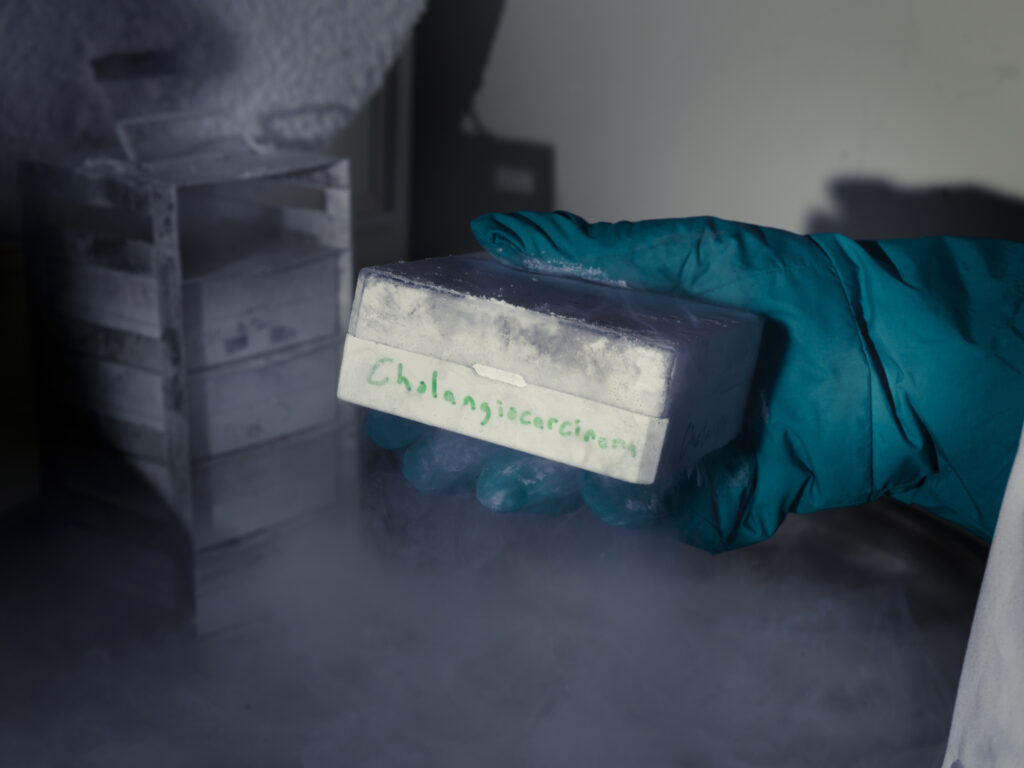Cholangiocarcinoma Cell Line Bank
Transforming tumors into essential research tools: The TargetCancer Foundation Cholangiocarcinoma Cell Line Bank
Cell lines and xenografts are essential tools in any cancer research program, yet the tumor tissue that is needed to generate them is often discarded following surgery. This is especially true when there is not a coordinated effort in place to immediately take that tissue from the operating room to the laboratory.

The TargetCancer Foundation Cholangiocarcinoma Cell Line Bank was founded in 2012 to combat this problem. Under the direction of Dr. Nabeel Bardeesy, this unique and innovative program unites researchers, surgeons, pathologists, and medical oncologists to generate a collection of critical cholangiocarcinoma cell lines and associated patient-derived xenografts. Since its founding, the program has expanded to several medical institutions, and created a robust and diverse repository of newly generated cholangiocarcinoma models.
In 2019, the development of this comprehensive collection was completed, and work to move the collection into the public domain was initiated so that these tools can be fully utilized by the entire cholangiocarcinoma research and drug development communities.
But why does TargetCancer Foundation focus on cell lines and xenografts? The answer lies in our founding goals.
TargetCancer Foundation’s first grant was awarded to the Center for Molecular Therapeutics (CMT) at the Massachusetts General Hospital Cancer Center. The CMT incorporates cancer cell lines into a sophisticated screening system that identifies personalized, targeted therapies for cancer. Upon founding TargetCancer Foundation, Paul Poth intended to incorporate cell lines for cholangiocarcinoma into the screening process at the CMT. By doing this, he hoped to quickly identify effective treatments that he and other patients could use.
Unfortunately, as is typical with rare cancers, no cholangiocarcinoma cell lines were in use at the CMT, and few existed anywhere else. Meanwhile, dozens to hundreds existed for more common cancers.
Within three years, The TargetCancer Foundation Cholangiocarcinoma Cell Line Bank created a solution for this unmet need. Today, tumor tissue from participating patients at Massachusetts General Hospital and other medical institutions are rushed from operating tables to laboratories in an effort to create new cell lines. These tools are not only driving research at the Bardeesy Lab, but are also directly informing the development of new clinical trials and treatments for cholangiocarcinoma. As they become a public resource in 2020 and beyond, their impact will continue to grow.
These cell lines are an essential element of TargetCancer Foundation’s funded cholangiocarcinoma research at the Bardeesy Lab. By utilizing cell lines and associated xenografts, there is remarkable potential to identify new, personalized treatment options for cholangiocarcinoma patients.
